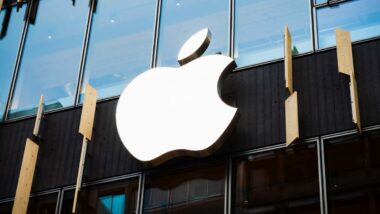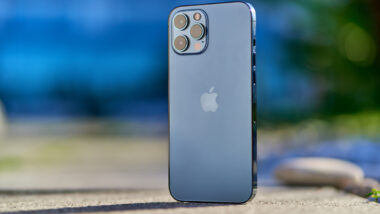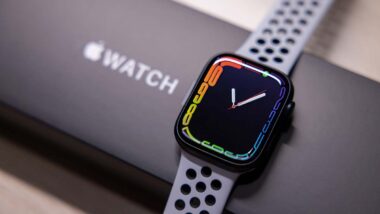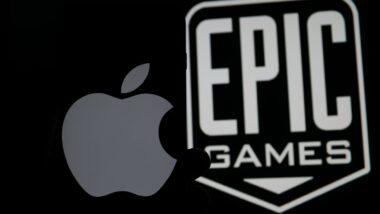Top Class Actions’s website and social media posts use affiliate links. If you make a purchase using such links, we may receive a commission, but it will not result in any additional charges to you. Please review our Affiliate Link Disclosure for more information.
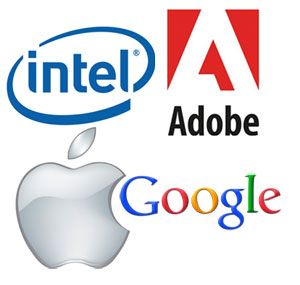
U.S. District Judge Lucy H. Koh said she would approve the new class action settlement amount during a hearing Monday, the plaintiffs’ attorneys said.
The $415 million anti-poaching class action settlement reached in January would allow Apple, Google, Intel Corp. and Adobe Systems Inc. to avoid what could be a $9 billion trial.
When Judge Koh rejected the $325 million class action settlement proposal, she said it was about $55 million lower than what it should be.
This class action settlement proposal was not opposed by plaintiff Michael Devine like the proposed $325 million class action settlement.
In the first class action settlement proposal, the plaintiffs’ attorneys were asking that the attorneys’ fees total 25 percent of the settlement, which is about $81 million. In the current $415 million class action settlement, Devine’s attorneys are asking for $4.5 million in attorneys’ fees.
The Apple, Google anti-poaching class action lawsuit was filed by tech employees about four years ago alleging that the companies kept salaries for software engineers artificially low after making secret deals with each other that they wouldn’t try to hire, or poach, from each others’ companies when looking for new software engineers.
When Judge Koh rejected the first class action settlement proposal, she said that there was sufficient evidence revealing a conspiracy between the companies and their executives showing that there was indeed an agreement not to hire from other tech companies, which included email conversations between top officials at the companies.
The original anti-trust class action lawsuit was filed against Adobe, Apple, Google, Intel, Intuit, Lucasfilm, and Pixar in May 2011 after the Justice Department revealed what it learned following an anti-trust investigation, in which the the senior executives of the tech companies had apparently struck deals with each other not to hire employees from each others’ companies. The agreement also allegedly led to de facto salary caps and prevented upward mobility.
It was alleged that the anti-poaching agreement led to a 10 to 15 percent reduction in salaries for tech engineers. The class is made up of about 64,000 software engineers.
Intuit, Lucasfilm and Pixar paid $20 million in a class action settlement in May 2014, which was approved by Judge Koh.
The tech companies were interested in reaching a settlement in the anti-poaching class action lawsuit to avoid a trial, which could result in the exposure of embarrassing emails between top officials at Apple, Google, Intel, Adobe, Intuit and the others, in which the deals were allegedly struck.
However, Judge Koh unsealed some of those emails in January 2014, which showed that the agreements allegedly went as high as Google CEO Eric Schmidt and former Apple CEO Steve Jobs, who died in 2011.
The practice allegedly began back in 1986 with Lucasfilm and Pixar.
Devine is respresented by Daniel C. Girard, Dena C. Sharp and Elizabeth A. Kramer of Girard Gibbs LLP.
The software engineers are represented by Kelly M. Dermody, Richard M. Heimann, Brendan Glackin, Dean Harvey, Anne B. Shaver and Lisa J. Cisneros of Lieff Cabraser Heimann & Bernstein LLP and Joseph R. Saveri, James Dallal and Andrew Purdy of Joseph Saveri Law Firm Inc.
Apple is represented by George A. Riley, Michael F. Tubach and Christina J. Brown of O’Melveny & Myers LLP. Google is represented by Donald M. Falk, Lee H. Rubin, Edward D. Johnson and Kristen A. Rowse of Mayer Brown LLP and Robert Van Nest, Daniel Purcell, Eugene Paige and Justina Sessions of Keker & Van Nest LLP. Intel is represented by Gregory P. Stone, Bradley S. Phillips, Gregory M. Sergi and John P. Mittelbach of Munger Tolles & Olson LLP. Adobe is represented by Robert A. Mittelstaedt, David C. Kiernan and Lin W. Kahn of Jones Day.
The Anti-Poaching Class Action Lawsuit is In re: High-Tech Employee Antitrust Litigation, Case No. 5:11-cv-02509, in the U.S. District Court for the Northern District of California.
UPDATE: The high-tech employee class action settlement has paid out! Checks were mailed the week of December 21, 2015. If you received a check, let us know in the comments. Congrats to everyone who got paid!
ATTORNEY ADVERTISING
Top Class Actions is a Proud Member of the American Bar Association
LEGAL INFORMATION IS NOT LEGAL ADVICE
Top Class Actions Legal Statement
©2008 – 2024 Top Class Actions® LLC
Various Trademarks held by their respective owners
This website is not intended for viewing or usage by European Union citizens.




